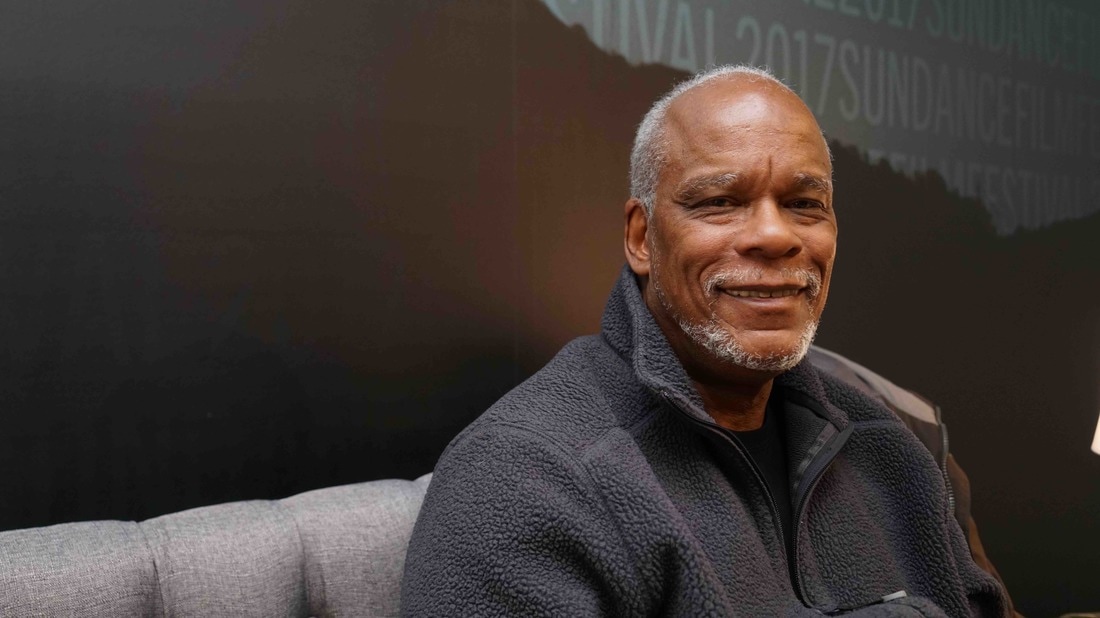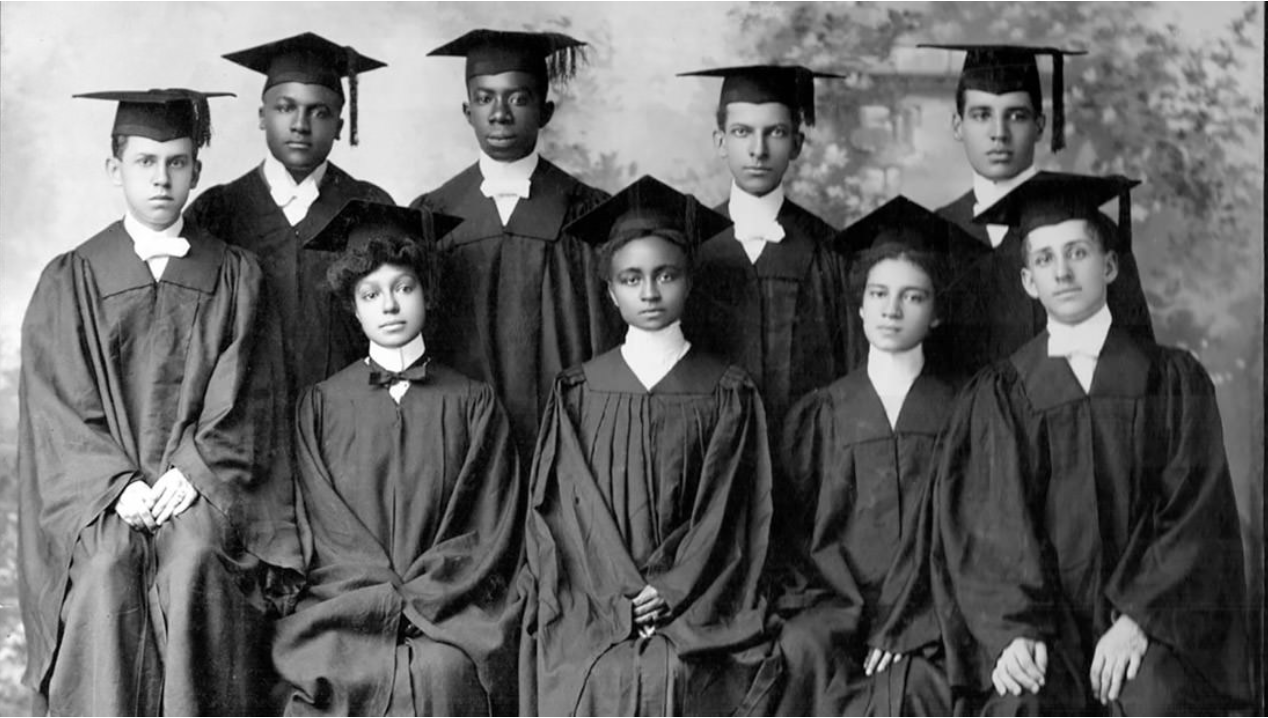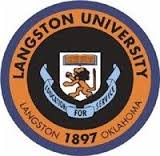|
At the festival with his new film on black colleges and universities, he tells doc community, 'You can't self-censor... You have to tell the truth.'
Award-winning filmmaker Stanley Nelson came to Sundance with his latest film that explores the African-American experience: Tell Them We Are Rising: The Story of Black Colleges and Universities. Had he waited any longer to embark on the project, it might not have happened.
"Tell Them We Are Rising would not be made if they get their way," he told Nonfictionfilm.com. The 'they' he is referring to is the new Trump Administration, which already has indicated its intention to drastically cut or eliminate funding to the National Endowment for the Humanities, the National Endowment for the Arts and other entities that support artists and storytellers. "Our film was partially funded by the National Endowment for the Humanities, by PBS, by CPB, by ITVS, by Independent Lens. All of those organizations are on the chopping block," Nelson said. There is going to be a real move to cut off any kind of telling of the truth -- any kind of introspective looking at the United States, where we've been, where we are and where we're going.
He added, "There is going to be a real move to cut off any kind of telling of the truth -- any kind of introspective looking at the United States, where we've been, where we are and where we're going."
The filmmaker has spent a career engaged in that kind of introspection about the country, with documentaries on Marcus Garvey, Emmett Till, the Freedom Riders, the Black Panthers, Wounded Knee, among many other subjects.
Tell Them We Are Rising explores the long history of America's black colleges and universities, drawing from resources overlooked until now.
"I knew it was a story that we could tell because a lot of these schools, dating back to 1865, have visual archives that have never been mined by anybody," Nelson said. The film offers new insight into the role of these institutions in the long struggle of African-Americans for opportunity and self-empowerment in the face of systemic oppression. There are no guarantees about the future survival of HBCUs. Nor is there any guarantee of continued progress for African-Americans in general given the new political reality. These are among the issues we discussed with Nelson in a conversation at the Sundance Co-op space on Main Street in Park City. We're trying to tell black people something that they don't know. And by definition that means we're telling white people something that they don't know, too.
We started by talking about the audience to which he directs his films.
Stanley Nelson: The way that I'm trying to aim the films is -- we're trying to tell black people something that they don't know. And by definition that means we're telling white people something that they don't know, too... What we're not trying to do... is be the interpreter of black culture to white people. We're trying to do something very different. Nonfictionfilm.com: Why did you decide to explore Historically Black Colleges and Universities? SN: It's an important story that people don't know, which is the kind of story that you want to tell. Most people -- especially white folks -- don't know the importance that black colleges have had in not only educating black people, in not only creating a black middle class but also in the civil rights movement and so many movements for change. So that's one reason. Another reason is the filmatic reason... All these schools have pictures. They all have yearbooks dating back over a hundred years, so all of that stuff hasn't been mined so we thought that was great visual material. Also as we get closer to today there's great witnesses who are part of the history -- the four young men who started the sit-in movement in 1960 at North Carolina A&T. The two of them still alive we were able to interview for the film. A third reason is my parents both went to black colleges. And my father who grew up in Washington DC where Howard [University] is based was very clear that he would have never gone to college if it wasn't the fact that Howard was right there... It was very simple in those days -- we're talking about the 30s -- for him to get the tuition fee to register and go to college. And he went to college, he became a very successful dentist, so that's afforded me the life I have, the life my siblings have and also the life my kids have and down through the generations will have because of black colleges.
A selection of insignias from among the 107 Historically Black Colleges and Universities in the U.S.
[Note: Nelson attended an HBCU for a time -- Morris Brown College in Atlanta -- but ultimately got his degree from City University of New York, a non-HBCU]
NFF: How would you contrast the experience of going to an HBCU versus another kind of academic institution? SN: In the past and even today black colleges are a nurturing experience. That's what they are. They kind of help you through, they push you through, they tell you you can do this. They also talk to you about what you're going to face in the real world. At a black college they'll say, 'Yeah, there's racism in this world. Yeah, there's prejudice in this world, but you have to work in this world. You have to work through that. You have to live your life in this world and work through that.' Well, you're not going to get that -- even if you're smart enough you go to Harvard, let's say, or Yale or Stanford, none of your professors are going to tell you that. There's not that nurturing piece of understanding what an African-American faces in these days, in these United States. It's really important for a young person, who is 18 to 21, 22 years old, to understand that. This is a takeover by the extreme right. These people are extremists and are attempting to do something that really, really will really set the country back.
NFF: Rep. John Lewis is one the key figures in one of your earlier movies,Freedom Riders. [As a young man Lewis helped lead the bus tour of the South that tried to upend Jim Crow segregation laws]. After Representative Lewis said he would not attend the inauguration of Donald Trump in protest, Trump attacked him on Twitter. What was your reaction to seeing that?
SN: Our country has taken this huge step back with the election of this man who will go nameless. It's taken a huge step back. What's really interesting to me -- because I've done a number of historical films -- is we have to understand that history is not this kind of upward mobility up into the heavens. History and progress is a roller coaster ride. When you study history, that's what it is. We go up and we reach a high point and then we kind of go down. We go up and we go down. And I think what happens is that if we don't keep pushing and don't keep fighting for progress then we go down and we kind of go backwards a little bit. We can't normalize it. And that's the scary part -- if it gets normalized then that becomes what this country is.
SN: I think some of the best things that are being said and to listen to are the people who are saying, 'You cannot normalize this.' This is not normal. This is a takeover by the extreme right. These people are extremists and are attempting to do something that really, really will really set the country back. And no matter what happens they will really set the country back. Even at the best, just by nominating people on the extreme right to the Supreme Court. But again we can't normalize it. And that's the scary part -- if it gets normalized then that becomes what this country is.
I do think it's our obligation to tell the truth. I think there is a truth.
NFF: What do you see as the role of the documentary filmmaker in these times?
SN: I think your obligation is only to what you see as your obligation. I don't want every filmmaker to be making a political film about Donald Trump or about the election. I don't want every black filmmaker to be making a film about black history. But your obligation is to what you see. I do think it's our obligation to tell the truth. I think there is a truth. And I think what's become our obligation -- like it or not -- is journalism, because journalism is just in a terribly sad state. What we saw on TV during the election -- what passes for journalism is you say your point and then the other person says their point and then we cut to commercial. And there's no challenging what anybody says or doesn't say... And I think it's up to us as documentary filmmakers to challenge that. So I think that's what's going to be really important in this Trump era. You can't self-censor. You can't fall into that. You can't be concerned about that. You have to tell the truth.
SN: I think the other thing is for us not to be scared because there are already those who are saying, 'Just keep your head down. Don't get out there, don't go out there because we are the funding agency and we're going to lose our funding if you as a filmmaker get too out there.' You can't self-censor. You can't fall into that. You can't be concerned about that. You have to tell the truth. I think it's going to be really important for the funding agencies to step out there because they're trying to cut government funding as much as they can.
[Note: Nelson's production company, Firelight Media, is teaming up with Field of Vision for a project called "Our 100 Days," a series of short films on the beginning of the Trump presidency]. NFF: When do you think we might see the first of these films? SN: I'm not sure when the first film is coming out... I'll get really involved once I get back from Sundance. We just finished Tell Them We Are Rising like four days ago, five days ago, so it was a mad dash to get us here to Sundance. We're doing a series of short films from different filmmakers talking about the 100 days, again the idea of not normalizing what's going on, of subverting the narrative that they're trying to tell. It's very, very important for [Trump supporters] to say, 'This is just business as usual. Nothing has changed.' But things have changed. What we try to do at Firelight is get diverse voices out there, voices that you normally won't hear and that's what the 100 days project is about.
SHARE THIS:
|
AuthorMatthew Carey is a documentary filmmaker and journalist. His work has appeared on Deadline.com, CNN, CNN.com, TheWrap.com, NBCNews.com and in Documentary magazine. |
- Home
- News
- Videos
-
Galleries
- 2019 Tribeca Film Festival
- Full Frame Documentary Film Festival
- 2019 SXSW Film Festival
- SXSW 2018 Gallery
- 2019 Sundance Film Festival
- Outfest 2018 Photo Gallery
- Outfest 2017
- Sundance 2018 Photos
- 2017 LA Film Festival
- 2017 Cannes Film Festival
- Tribeca Film Festival 2017
- SXSW 2017 Gallery
- 2017 Berlin Film Festival
- Sundance 2017 Gallery
- 2016 Los Angeles Film Festival
- Cannes Film Festival 2016
- SXSW 2016 Gallery
- Berlinale 2016 Gallery
- Sundance 2016 Gallery
- Filmmaker Gallery
- About
- Contact
Proudly powered by Weebly
- Home
- News
- Videos
-
Galleries
- 2019 Tribeca Film Festival
- Full Frame Documentary Film Festival
- 2019 SXSW Film Festival
- SXSW 2018 Gallery
- 2019 Sundance Film Festival
- Outfest 2018 Photo Gallery
- Outfest 2017
- Sundance 2018 Photos
- 2017 LA Film Festival
- 2017 Cannes Film Festival
- Tribeca Film Festival 2017
- SXSW 2017 Gallery
- 2017 Berlin Film Festival
- Sundance 2017 Gallery
- 2016 Los Angeles Film Festival
- Cannes Film Festival 2016
- SXSW 2016 Gallery
- Berlinale 2016 Gallery
- Sundance 2016 Gallery
- Filmmaker Gallery
- About
- Contact







 RSS Feed
RSS Feed